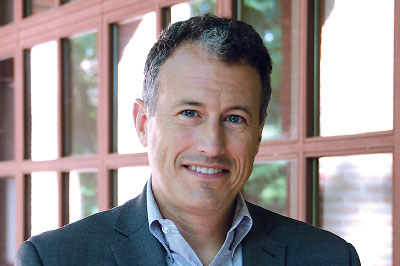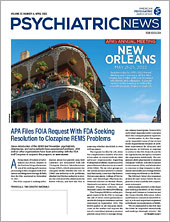Individuals with moderate to severe depressive symptoms were twice as likely to believe misinformation about COVID-19 vaccines than those without depressive symptoms, according to a report in JAMA Open Network. Moreover, individuals who believe misinformation about COVID vaccines are less likely to be vaccinated or be willing to get the vaccine.
Roy H. Perlis, M.D., M.Sc., associate chief for research in the Department of Psychiatry and director of the Center for Quantitative Health at Massachusetts General Hospital, and colleagues analyzed data from U.S. adults who responded to at least one of two online surveys conducted between April 1 and May 3, 2021, and between June 9 and July 7, 2021. The surveys were part of The COVID States Project, which has issued surveys approximately once every six weeks since April 2020.
As part of these surveys, the respondents were asked to indicate whether they believed the following statements to be accurate or inaccurate: “The COVID-19 vaccines will alter people’s DNA,” “The COVID-19 vaccines contain microchips that could track people,” “The COVID-19 vaccines contain the lung tissue of aborted fetuses,” and “The COVID-19 vaccines can cause infertility, making it more difficult to get pregnant.”
Survey participants also completed the Patient Health Questionnaire 9-item (PHQ-9) to assess whether they had major depressive symptoms over the preceding two weeks, with a score of 10 indicating at least moderate depression.
“We know that depression can be associated with a negative cognitive bias—that is, with increased attention to more negative aspects of the environment—so we wondered if that bias might predispose people to believe misinformation, since so much misinformation is negative,” Perlis told Psychiatric News. “So much of the discussion of misinformation focuses on the sources of misinformation. There’s no question there’s a lot that can be done to address those sources. We wanted to understand what makes people more susceptible to misinformation.”
Among 15,464 survey respondents (64% of whom were women), 26.9% had at least moderate depressive symptoms on the PHQ-9, and 19.2% indicated they believed at least one vaccine-related statement of misinformation. People with depressive symptoms were 2.33 times more likely to endorse misinformation than those who did not have depressive symptoms.
The researchers also analyzed a subset of 2,809 individuals who answered both surveys. They found that people who reported depressive symptoms in the first survey were more likely to mark more vaccine-related statements of misinformation as true in the second survey.
The findings point to a need for improving care, Perlis said.
“This is just one more reason that we as a country need to make sure people can be evaluated for depression when they need it, and access good, evidence-based treatment when they need it,” Perlis said. “I think we as psychiatrists have an obligation to advocate for better and more accessible care. So I hope this becomes yet another motivation for people to advocate for such care.”
Richard A. Friedman, M.D., a professor of clinical psychiatry and director of the Psychopharmacology Clinic at Weill Cornell Medical College, who was not involved in the research, reflected on the findings as they relate to the longevity of the pandemic. Friedman is the author of a paper in the January 2021 issue of Psychiatric Services that explored the reasons why people are vulnerable to conspiracy theories.
“Negative information, whether true or false, jives perfectly with the pessimistic outlook that is the hallmark of depression—a sense that one is powerless and vulnerable in a world where uncontrollable and bad things happen,” Friedman said. “Considering the high lifetime prevalence of depression in the country—around 20%—and the fact that it has soared during the pandemic, it is no stretch to think that depression could play a significant and hidden role in the spread of misinformation in general and prolongation of the pandemic,” Friedman said, noting that the United States has comparatively low rates of full vaccination compared with most countries in the world.
Friedman recommends that psychiatrists take a nonaggressive approach to opening discussions about vaccine misinformation with their patients.
“I think being curious and nonjudgmental and using gentle questioning is a good place to start,” he said. “Ask your patients where they got the information, try to understand how they think about it, and then suggest there are different and more accurate data you can share and explain why that information is correct.”
This study was supported by the National Science Foundation, the National Institute of Mental Health, Northeastern University, Harvard Kennedy School of Government, and Rutgers University. ■
“Association of Major Depressive Symptoms With Endorsement of COVID-19 Vaccine Misinformation Among US Adults” is posted
here.
“Why Humans Are Vulnerable to Conspiracy Theories” is posted
here.
APA offers psychiatrists information and resources about COVID-19 and vaccination
here.


